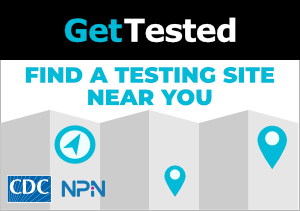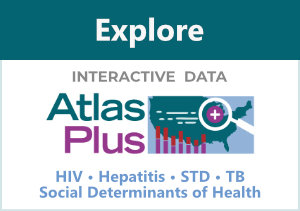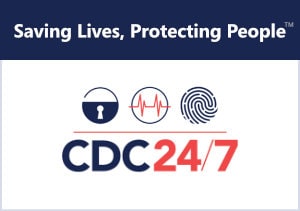Implementing Routine Hepatitis C Screenings for At-Risk Clients in Buncombe County
PCSI Success Stories
Strengthening Collaboration and Service Integration in Buncombe County, North Carolina
Buncombe County North Carolina is home to 16 substance abuse treatment centers, ranking it near the top in the state for the number of treatment centers. Most of these centers traditionally have not offered testing for or education on HIV and hepatitis C to their clients. Additionally, the county’s jail historically has not provided its inmates with the opportunity to get tested for hepatitis C.
In 2010, the North Carolina Department of Health and Human Services (NCDHHS) implemented CDC’s Program Collaboration and Service Integration (PCSI) initiative. One of the primary goals of PCSI is to maximize opportunities for individuals to receive the best preventive service and treatment possible. During the initial planning phase, the state PCSI team conducted an epidemiologic review of each participating county. This review, coupled with their hypothesis that Buncombe County contained a significant proportion of the state’s current and former injection drug users, led Buncombe County Department of Health (BCDH) to explore ways to implement hepatitis C testing in the area.
Hepatitis C Screening for At-risk Clients
Thank you, [Buncombe County Health Department] so much for being here for us. It means a lot.” – Substance Abuse Client, Buncombe County, NC
First, BCHD offered hepatitis C testing for at-risk clients who accessed clinical services at the health department. In December 2011, PCSI funding provided BCDH the support to implement free hepatitis C testing and education for clients in the STD, TB, Family Planning, and Breast/Cervical Cancer Control clinics who reported having at least one risk factor (see Table 1) for hepatitis C and had no knowledge of a prior positive hepatitis C test.
Table 1.
|
Risk Factors for Hepatitis C |
|
|---|---|
| Injection drug user — (ever) | Organ transplant prior to 1992 |
| Sexual activities exposure to blood | Occupational Exposure — (job-related needle-stick injury) |
| Men who have ever had sex with men | Person born to a Hepatitis C positive mother |
| Blood transfusion prior to 1992 | Increased liver enzymes |
| Clotting factor prior to 1990 | HIV-positive |
Today, this testing is offered along with traditional HIV and STD testing. BCDH nurses also educate clients about hepatitis C; teach them how to reduce their risk of becoming infected with the hepatitis C virus; and offer information on resources in the community that can assist them with medical care and substance abuse, such as Alcoholics Anonymous, Narcotics Anonymous, and the local needle exchange program. Positive test results are shared with the client, who is then counseled and referred to a medical provider.
Hepatitis C Testing in the Community
BCDH also wanted to focus efforts on increasing hepatitis C testing in the community. All 16 substance abuse treatment centers in Buncombe County, as well as local homeless shelters, were invited to join local and state PCSI steering committee members at a roundtable discussion about their clients’ hepatitis C testing needs. Six substance abuse centers and a local homeless shelter participated. Only one of the substance abuse centers offered hepatitis C testing to its clients. All of the other facilities expressed interest in providing testing and education on hepatitis C and HIV to their clients but voiced concerns regarding their lack of trained staff to perform these services. As a result, in December 2011, BCDH began providing education and hepatitis C and HIV testing to at-risk populations in non-traditional testing sites such as the county jail, substance abuse centers, other facilities serving the homeless, and at community events.
Program Successes
Hepatitis C Testing at BCDH
From 2011 through June 2013, 1118 at-risk clients were tested for hepatitis C at BCDH clinics and educated on how to reduce their risk of contracting the virus. Of those tested, 64 (5.7%) were diagnosed with HCV infection and educated on ways to reduce spread of the infection and slow disease progression.
Hepatitis C Testing at Non-traditional Sites (NTS)
From March 2012 through June 2013, 1202 people participated in hepatitis C and HIV education sessions at 22 non-traditional testing sites, which resulted in 486 persons being tested (see Table 2) with the following results:
Table 2.
|
Site (N=22) |
# clients tested |
# + HCV tests (% +) |
# + HIV tests |
|---|---|---|---|
| Substance abuse centers | 245 | 27 (11%) | 0 |
| Homeless center | 99 | 18 (18%) | 1 |
| County jail | 18 | 4 (22%) | 0 |
| Other NTS | 124 | 8 (6.4%) | 0 |
Through this testing, the county and state have obtained baseline data on hepatitis C prevalence for at-risk populations in non-traditional testing sites. Additionally, education provided to both infected and at-risk individuals may have helped to reduce the spread and burden of hepatitis C in the community.
Lessons Learned
With the flexibility and innovation offered through PCSI, BCDH was able to train staff in new areas, allowing them to refocus efforts on population health through increased community engagement. BCDH developed new relationships and expanded existing ties with community organizations such as substance abuse centers, facilities serving the homeless, a local non-profit focused on HIV/AIDS, and the local jail. PCSI outreach activities connected BCDH with marginalized at-risk populations such as injection drug users, the homeless, and the incarcerated and allowed BCDH to meet these populations in the community rather than the health department. These efforts also increased the agency’s knowledge about the significance of the hepatitis C epidemic in Buncombe County and the needs of the community.
Future Directions
Participation in the PCSI cooperative agreement served as a stimulus for further BCDH activities in the community. The agency is working with social workers who have been assigned to communities to connect residents with needed services and information. These social workers act as local navigators to increase awareness of STDs, HIV, and hepatitis C among minority populations. Building on the services provided through PCSI activities, BCDH is now participating in a grant with a local non-profit to provide testing for gonorrhea, chlamydia, and syphilis (in addition to HIV and hepatitis C testing) to at-risk populations at non-traditional testing sites such as housing projects. The agency also hopes to directly link those testing positive for the HCV antibody to medical care for confirmatory testing, evaluation, and treatment. BCDH will continue to focus on improving its ability to capture accurate data related to services provided and testing performed.
For more information, please contact:
Nicole L. Beckwith, MPA
PCSI Program Coordinator Communicable Disease Branch
Division of Public Health N.C. Department of Health and Human Services
919-733-9559
Nicole.beckwith@dhhs.nc.gov
Printable PDF versionpdf icon of PCSI Success Story


